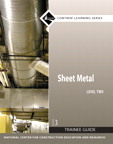Editor’s Note: Pam Krivda is HARDI’s human resources consultant. She has in-depth experience on employment and labor relations issues, and because HARDI provides her services to its membership, we thought it was timely to ask a few questions.
Tom Perić: Pam, I heard you speak at a HARDI event when you gave a thorough presentation covering a wide variety of HR issues. Before we go in that direction, please tell us something about yourself and your practice specialty.
Pam Krivda: My entire career has been built on helping employers navigate the tricky waters of HR compliance, best practices and managing workforce situations. I was a director of human resources for a big-city daily newspaper. In fact, that’s the reason I went to law school: I wanted to really specialize in employment and labor law and human resources discipline. I have continued practicing law in that area and advising on HR issues and workforce management ever since. I am a certified specialist in labor and employment law through the Ohio State Bar Association. Through all of these experiences, I have probably already experienced almost anything that can happen in a company’s workforce.
Perić: You are the “go to” person for HARDI members who have HR issues or need advice. Please tell us how you became involved with HARDI.
Krivda: I became formally involved with HARDI last fall (2016) when I presented at a HARDI conference and had “office hours” at the HARDI Summit Conference in Colorado in December. We formally rolled out the HR subscription program in January 2017.
Perić: When talking to business people, I frequently hear the problems companies often face are centered around HR issues. Is this a reality in the marketplace, or is this an anecdotal misinterpretation on my part?
Krivda: I don’t think it’s an anecdotal misrepresentation! There are risks in the way you solve any business problem, but not quite like the risks represented in solving employee issues. The reason lies on both sides of the equation: Employers may not be adept at telling employees what is required and then enforcing the requirements consistently across the workforce. On the other hand, employees frequently don’t recognize their own contribution to a bad situation. The law favors employees, so solutions to employment issues can carry the risk of charges of discrimination, lawsuits, and expensive and very time-consuming litigation and document production.
Perić: At the risk of oversimplifying, if you were in a room of 100 distributors — owners and managers — and you could offer them one piece of advice regarding their HR policies, what would it be?
Krivda: Wow, one piece of advice! That’s a tough order for a lawyer! My one piece of advice would be: “Get your HR house in good working order and be willing to make tough decisions when they’re called for.” This will reap benefits in all corners of the business.
Perić: How do you know when a company needs a full-time HR professional? Often it seems that for small companies, the HR person also has other tasks. Is it an employee-size issue, a revenue-size issue or something else?
Krivda: Of course, it depends. If you have someone doing it part-time who is really good (and has some administrative help), that could work for more than 200 employees. Beyond 200 to 300 employees, it’s probably best to be looking for someone primarily dedicated to the HR management role. Revenue size doesn’t seem to matter as much as the number of employees and the availability of reliable administrative assistance.
Perić: When is it time for a distributor to reach out to an attorney to protect the interests of the company regarding an HR problem?
Krivda: It's hard to say. Anytime the application of the law to an employee complaint could be indicated, it’s really time to talk to an attorney. I will say this: the clients who call me early when a problem is, or could be, developing pay significantly less in attorney bills than people who wait until they’re on the cusp of litigation to call. We can make decisions and take steps early on to avert litigation, but not after the cat is out of the proverbial bag.
Perić: Again, at the risk of generalizing, are there basic HR policies that everyone can follow which will minimize the risk of a potential problem escalating?
Krivda: Yes, but they have to be consistently applied. A few examples: Standards of Conduct Required By the Employer; Non-Harassment and Employee Responsibility (and reporting procedure); Fair Labor Standards Act Safe Harbor policy; Electronic and Information Security Policy; Confidentiality, Family and Medical Leave Act; and At-Will Employment, where applicable.
Perić: Please tell us the best way for HARDI members to avail themselves of your services.
Krivda: Call or email! You can reach me at 614-334-6159 or pkrivda@taftlaw.com. I have a team here to take questions and help out when I’m not available. My legal assistant, Tamera Padovan (614-334-6122), can always get in touch with one of the team members to help out.
Perić: What question should I ask you that I haven’t?
Krivda: What’s the single most important way to stay out of court? By having published policies, consistently applied to all employees.











